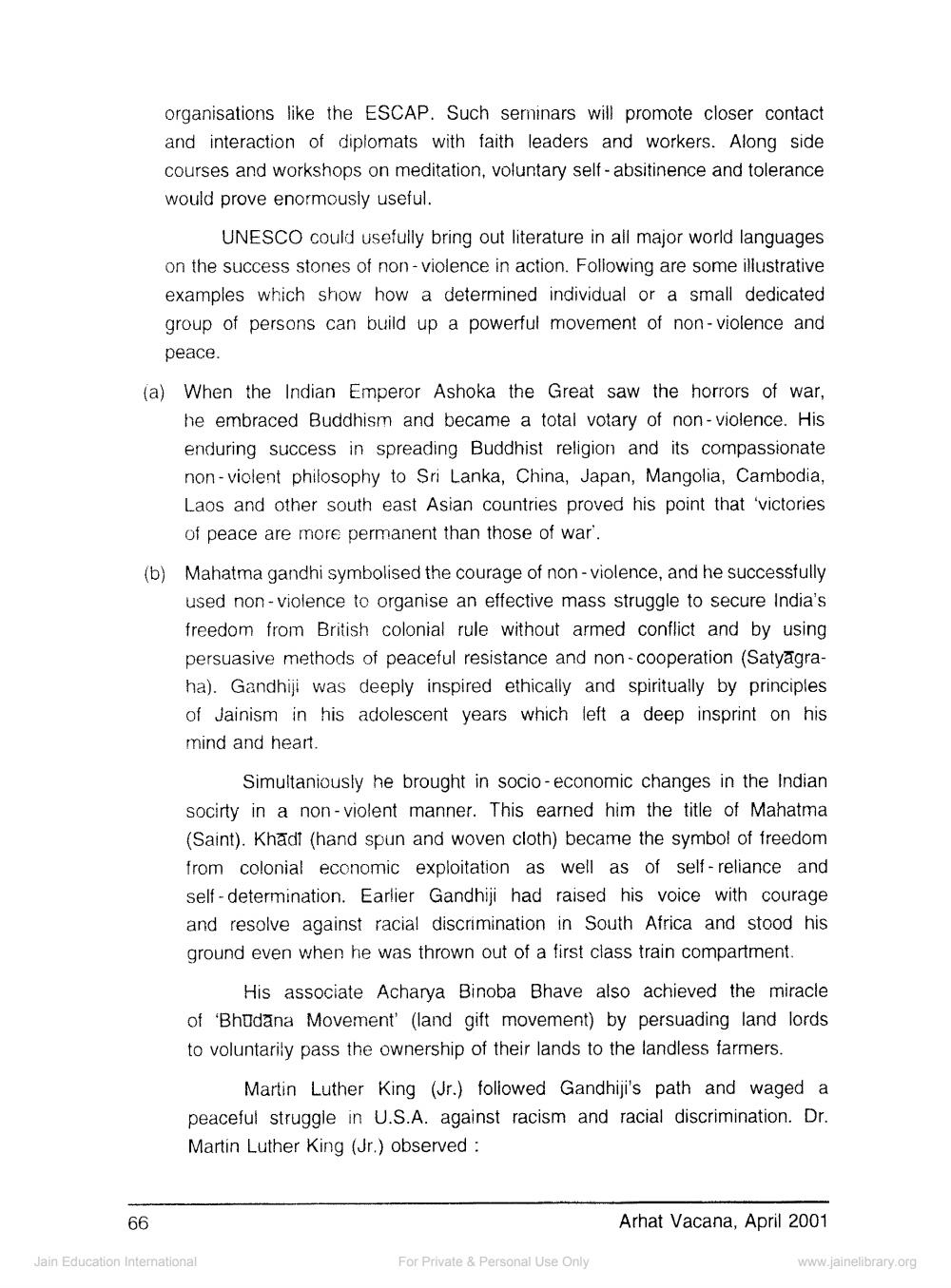________________
organisations like the ESCAP. Such seminars will promote closer contact and interaction of diplomats with faith leaders and workers. Along side courses and workshops on meditation, voluntary self-absitinence and tolerance would prove enormously useful.
UNESCO could usefully bring out literature in all major world languages on the success stones of non-violence in action. Following are some illustrative examples which show how a determined individual or a small dedicated group of persons can build up a powerful movement of non-violence and peace.
(a) When the Indian Emperor Ashoka the Great saw the horrors of war, he embraced Buddhism and became a total votary of non-violence. His enduring success in spreading Buddhist religion and its compassionate non-violent philosophy to Sri Lanka, China, Japan, Mangolia, Cambodia, Laos and other south east Asian countries proved his point that 'victories of peace are more permanent than those of war'.
66
(b) Mahatma gandhi symbolised the courage of non-violence, and he successfully used non-violence to organise an effective mass struggle to secure India's freedom from British colonial rule without armed conflict and by using persuasive methods of peaceful resistance and non-cooperation (Satyagraha). Gandhiji was deeply inspired ethically and spiritually by principles of Jainism in his adolescent years which left a deep insprint on his mind and heart.
Simultaniously he brought in socio-economic changes in the Indian socirty in a non-violent manner. This earned him the title of Mahatma (Saint). Khadi (hand spun and woven cloth) became the symbol of freedom from colonial economic exploitation as well as of self-reliance and self-determination. Earlier Gandhiji had raised his voice with courage and resolve against racial discrimination in South Africa and stood his. ground even when he was thrown out of a first class train compartment.
His associate Acharya Binoba Bhave also achieved the miracle of Bhudāna Movement (land gift movement) by persuading land lords to voluntarily pass the ownership of their lands to the landless farmers.
Martin Luther King (Jr.) followed Gandhiji's path and waged a peaceful struggle in U.S.A. against racism and racial discrimination. Dr. Martin Luther King (Jr.) observed:
Jain Education International
For Private & Personal Use Only
Arhat Vacana, April 2001
www.jainelibrary.org




